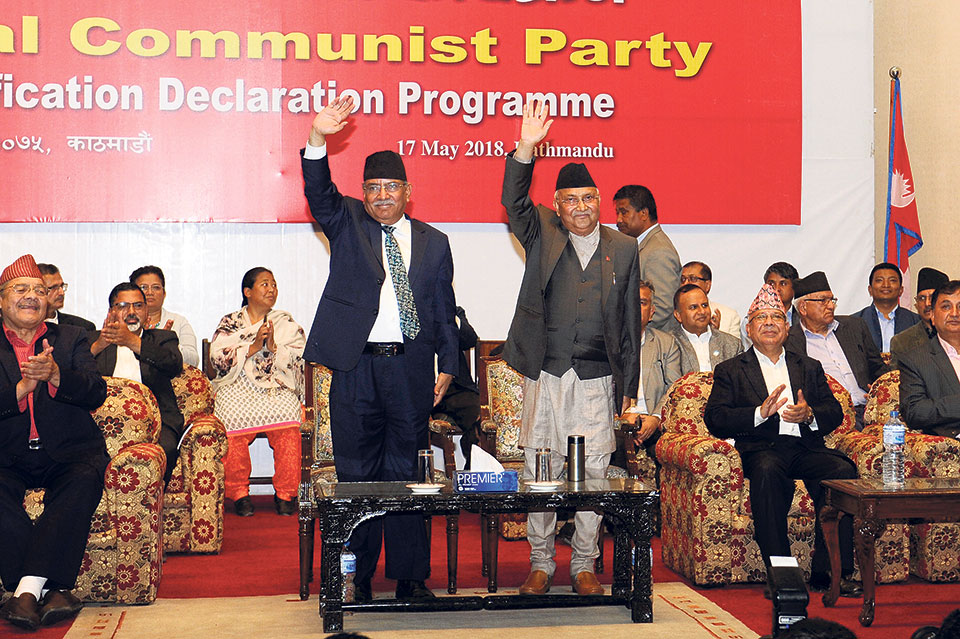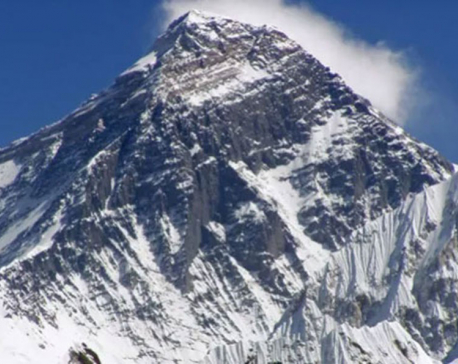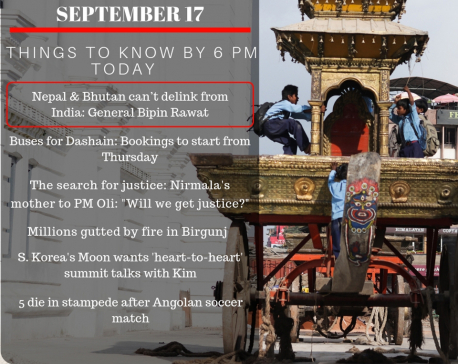
OR
NCP Split
Divided they fall, united they will win
Published On: December 29, 2020 08:15 AM NPT By: Dai Yonghong


Dai Yonghong
Dai Yonghong, a professor, is the Director at Institute of the Bay of Bengal Studies,Shenzhen University. He is also the academic member at China Center for South Asia Studies at Sichuan University, China.news@myrepublica.com
It would be in better interest of Nepal and Nepali people if NCP and other parties peacefully resolve their differences, restore the parliament and work to realize Nepal’s dream of prosperity and happiness.
Nepal’s political course was taking a firm shape. The country promulgated the new constitution in 2015, ending years of transitional phase. The 2017 elections gave a thumping majority to the alliance of Maoist Center and CPN-UML in local, provincial and federal levels. The alliance, with almost two thirds majority in the parliament, formed the government, perhaps the strongest government in modern history of the country. Then when in 2018 Maoist Center and CPN-UML finally merged to create a unified communist party—Nepal Communist Party (NCP)—it felt like a watershed moment for the Himalayan republic.
The chairmen of erstwhile UML and Maoist Center—K P Sharma Oli and Pushpa Kamal Dahal—now became the chairmen of unified NCP and they gave a strong message of unity and expressed strong commitment for development, prosperity and stability, which Nepal had craved for several decades.
With this, NCP became the largest governing party since the country became a republic in 2008. When the government unveiled its "Prosperous Nepal, Happy Nepali” vision and showed the determination to realize this vision, it could be understood that Nepal was heading toward the right direction. People were happy and excited and they had high hopes from the NCP-led government.
Personally, I was pretty optimistic about the future of Nepal. Immediately after the unity, I wrote in this daily that communist unity is a historical step for Nepal to have a sustainable and stable government and to focus on national agenda of economic development and social progress (see: “Good for Nepal,” Republica, May 21, 2018).
NCP’s journey, however, was not smooth. The real integration proved to be challenging because of differences among the leaders—coming from Maoist camp as well those from UML camp—over ideology, plans and programs of the party, allocation of portfolios, integration of local institutions and other aspects. Crisis started to further deepen and this year—in 2020—it reached a nadir. The two factions—the one led by Pushpa Kamal Dahal and Madhav Nepal and the other led by Prime Minister K P Sharma Oli—hardened their positions. Rounds and rounds of negotiations, apparently to find the common ground, failed.
With the decision of the Prime Minister Oli to dissolve the House of Representatives on December 20, NCP has been divided into Dahal-Nepal camp and Oli camp. Each faction is blaming the other for the split. Top leaders are blaming each other for this unfortunate situation Nepal has fallen into.
The political turmoil caused by the internal conflict in NCP will have a serious impact in domestic politics and Nepali people. First, the split of NCP has damaged its image and weakened its strength. The NCP had near two-thirds majority in the parliament and was entrusted to govern the country for five years. But the parliament has been dissolved two years before its full term and the party has broken apart. Mid-term elections have been declared for April and May but there is a doubt that elections will ever take place. Besides, because of the crisis Nepali people have lost faith in NCP. Divided, tarnished and demoralized, how will NCP win people’s confidence again?
Second, the party conflict is a disastrous blow to the country and its people. Nepal is still to emerge from the Covid-19 crisis. With nearly 260,000 Covid-19 infections and nearly 1,800 deaths, the situation is far from normal. Fighting against Covid-19 and focusing on economic development should have been the topmost priorities for the government and NCP in Nepal. But NCP was too busy with internal conflicts and its leaders do not seem to have paid much attention towards epidemic control and development. This is a fatal blow to the country and it is likely to raise people’s dissatisfactions and frustrations with the communist leaders.
Under the strong NCP government in Kathmandu, relations between Nepal and China were being further enhanced. Nepali president and prime minister visited China and President XI made a historic visit to Nepal. There have been agreements between the two countries on trade, connectivity and development cooperation and there had been commitment from each side to assist each other. Many high level visits took place between the two countries. Friendship between the two countries was rising high. It was obvious that the closer ties and engagements between the two countries were not liked by some countries which are not happy with the rise of China. But it was in the interest of both Nepal and China to deepen cooperation, which was actually happening in recent years. It was also clear that certain elements were not happy to see united and strong communist party in Nepal.
Even though the split is an internal matter of NCP, there is a worry that it will have ramifications in Nepal-China relations as well.
NCP should have stood united. It could have stood united.
It is obvious that Nepal and Nepali people will benefit if political partiesgive priority to national stability and development.
Thus it would be in better interest of the country and people if NCP and other parties peacefully resolve their differences through dialogue, restore the parliament and work to realize the dream of national prosperity and happiness. Particularly, communist leaders need to realize that when divided they will be weak and when united they will be able to overcome the challenges and win the trust of people.
You May Like This

Govt decides to allow one regular flight a week to Qatar, Turkey and China
KATHMANDU, May 28: The government has decided to allow a regular flight each week to China, Qatar and Turkey starting... Read More...

Has Sagarmatha’s height increased? Nepal and China to reveal the newly-measured height today
This the first time the government has measured the height of Sagarmatha on its own ... Read More...

Sept 17: 6 things to know by 6 PM today
Your daily dose of missed important news of the day. ... Read More...






Just In
- Challenges Confronting the New Coalition
- NRB introduces cautiously flexible measures to address ongoing slowdown in various economic sectors
- Forced Covid-19 cremations: is it too late for redemption?
- NRB to provide collateral-free loans to foreign employment seekers
- NEB to publish Grade 12 results next week
- Body handover begins; Relatives remain dissatisfied with insurance, compensation amount
- NC defers its plan to join Koshi govt
- NRB to review microfinance loan interest rate











Leave A Comment